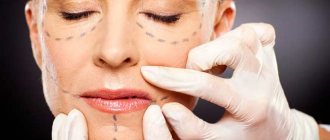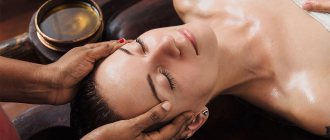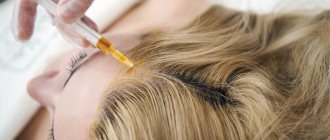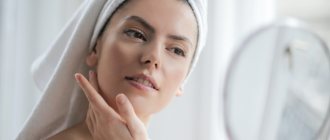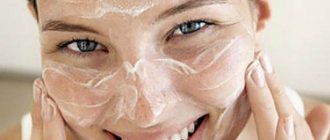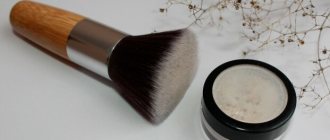January 14, 2022, 3:25 pm - Public News Service - OSN Taking care of your skin should be an integral part of your daily health regimen. After all, her condition, first of all, affects her appearance. Vitamins for the skin play an important role in this care: they ensure its healthy regeneration, maintain tone, hydration and protect against inflammatory processes.
What vitamins are useful and necessary for the skin of the face and body? Where can I get them from? Do I need to take these substances in the form of dietary supplements and how to choose them? Dermatovenereologist, dermatologist, and cosmetologist Svetlana Bondina answered these questions for the Public News Service .
Why vitamins are needed for healthy skin
Our body needs dozens of nutrients every day. He can produce some of them on his own. For example, vitamin D is formed in our body under the influence of sunlight. Just 10-15 minutes spent in the sun daily saturates the body with a sufficient amount of this substance.
Vitamin D is one of the main vitamins that is “responsible” for the skin. But, as the largest organ of our body, it also needs other components. And our body does not know how to produce them on its own, but can only obtain them from food. If some components are not enough, the result will not take long to appear, but will literally appear on the face.
The sun helps take care of the skin (Photo: pexels.com)
When are vitamins good for the skin?
“Vitamins are unrelated organic substances that cannot be synthesized in the human body,” comments dermatologist Svetlana Bondina. “They should be supplied with food in small quantities, thereby preventing metabolic disorders.”
Vitamins play a significant role in skin care because they:
- protect it from premature aging;
- prevent tissue sagging;
- prevent early color change;
- eliminate increased dryness;
- maintain radiance, preventing dullness.
It is important for the human body that these substances are supplied daily in sufficient quantities, not small, but not large.
“A lack of vitamins necessary for the skin harms its condition, just like an excess,” says Svetlana Bondina. “And this negatively affects one’s appearance.”
Deficiency and excess are equally harmful (Photo: pexels.com)
Care
Additionally, the following procedures are recommended:
- oxygen therapy;
- ozone therapy;
- magnetic therapy;
- vitamin injections;
- cell mineralization;
- laser therapy and so on.
All procedures are combined with the use of high-quality caring cosmetics recommended by a specialist. It is recommended to constantly be in touch with a dermatologist so as not to cause damage to your health. In order to detect violations in time and correct the situation, regular monitoring is needed.
What vitamins are important for improving the skin of the face and body?
Among the nutrients that play a leading role in the health of the epidermis, nine nutrients are distinguished.
Vitamin A
This organic compound is fat-soluble, meaning it is absorbed into the body only in the presence of fat. There are several forms of the nutrient.
- Beta-carotene . A precursor substance to vitamin A, it is found in this form in foods.
- Retinol, retinal, retinoic acid and esters . The most active forms of the nutrient, some of which are included in vitamin complexes for hair, nails and skin, as well as in specialized cosmetics (usually professional, medicinal cosmetics).
Retinol is one of the most important forms of vitamin for youth and beauty of the skin, as it is responsible for the renewal of epidermal cells and protects tissues from premature aging. For severe problems with the skin, preparations with retinoids are used for medicinal purposes.
Diagnostic methods
To find out what causes very dry facial skin, how to treat dry body in women and men and find the causes, it is necessary to conduct a comprehensive examination to treat the patient, which includes:
- clinical and biochemical blood tests;
- consultation with a dermatologist and cosmetologist;
- study of hormonal status;
- allergen analysis and so on.
The full list of necessary diagnostic tests depends on the individual condition. Root causes, in particular, may be related to stress, phase of the life cycle, and so on.
How to understand what vitamins your skin lacks
Nutritional deficiencies cannot be asymptomatic. In this case, the condition of the epidermis changes and worsens. At the same time, the skin will react differently to a lack of vitamins, depending on which particular substance is missing.
“First of all, the skin reacts to a lack of vitamins with a dull or altered complexion,” notes Svetlana Bondina, “flabbiness, premature appearance of wrinkles and increased dryness.”
The “marker” signs of a lack of a specific nutrient will be the following symptoms.
- Ascorbic acid (C). If there is a lack of it, the rate of wound healing is disrupted, and hemorrhagic lesions (sudden appearance of bruises without previous injuries) may occur.
- Biotin (B7). It manifests itself as hair loss and perioral dermatitis - chronic inflammation of facial tissues.
- Pyridoxine (B6). If the skin of the face lacks this vitamin, it will respond with severe peeling and a red rash. Seborrheic dermatitis develops, which also leads to the appearance of profuse dandruff.
- Niacin (B3). This results in the development of pellagra. This is the name for a skin disease, which is manifested by increased sensitivity of the epidermis to sun exposure and the appearance of pigmentation. Areas exposed to sunlight are affected.
- Riboflavin (B2). Its deficiency is characterized by pale skin, the formation of cracks in the corners of the mouth and in the lip area. A characteristic symptom is the formation of red, itchy spots on the ears, eyelids and around the nose.
“These signs alone are not enough to diagnose nutrient deficiency,” notes Svetlana Bondina, “since some of them can be observed even with sufficient levels of substances in the body. To clarify which vitamins to take for the skin, you need to consult a doctor and, if necessary, laboratory confirm their deficiency or excess.”
To choose a drug, you need to consult a doctor (Photo: pexels.com)
Signs of dermatitis
With dermatitis, symptoms develop gradually. At each stage, symptoms appear with different intensities and persist for different times. Dermatitis goes through the following stages:
- Severe itching
- The appearance of redness
- Development of swelling,
- Bubble formation
- The process of bursting bubbles
- Formation of weeping ulcerative lesions,
- Drying, formation of crusts, cracks,
- The appearance of blue-pink spots and scar formation.
With the allergic form of dermatitis, the last stage does not develop.
What vitamins should you take to improve your facial skin?
According to the doctor, all the substances the body needs can be obtained from food. And if a person eats a balanced diet, he does not need to receive nutrients in the form of vitamin complexes.
If there are “excesses” in the diet, for example, sharp restrictions in the choice of products while following a strict diet, a vegetarian diet, it is important to check with the doctor which vitamins are best for the skin during this period, and take strictly the drug that will be prescribed.
It is impossible to eliminate a deficiency if it has already developed using diet alone. But you can correct the aesthetic imperfections of your face by including certain foods in your diet.
For dry skin
Sources of vitamins E, B7 and B6 are needed, including unrefined oils, meat, and egg liver. They help with dry skin of the face and body, help moisturize it, and protect against peeling.
For oily skin
For her, foods rich in vitamin A of both animal and plant origin will be a real salvation. Dairy products, fish, liver, butter, as well as legumes and carrots will reduce the likelihood of developing problems in the form of rashes and acne.
For radiant skin
If you have a dull complexion, you need to include sources of ascorbic acid and cobalamin in your menu. These are plant products (fresh fruits, berries and vegetables), as well as animal products: meat, liver, seafood.
For aging skin
It is impossible to stop the aging process, but it is possible to slow down and smooth out its manifestations. Nutrients with pronounced antioxidant properties, in particular vitamins A and C, help with this. The first is found in large quantities in animal products, and the second is found only in plant-based and non-heat-treated ones. After 50 years, their content in the diet cannot be reduced.
For acne
If you are concerned about rashes, you should increase your consumption of foods rich in vitamin A. If the effect of the diet is not noticeable, you should consult a dermatologist. To correct the problem, systemic retinoids are used - active forms of nutrients intended for oral administration.
Medicines prescribed by a doctor according to indications and for a diagnosed problem will be effective and help in solving it. But choosing vitamin complexes for facial skin in a pharmacy on your own, much less buying them in the form of dietary supplements, makes no sense.
“Dietary supplements do not undergo such strict control as medicines,” clarifies Svetlana Bondina. “Their effectiveness has not been proven.”
Dietary supplements will not be effective (Photo: pexels.com)
Peeling on the legs
This is a fairly common disorder that affects both men and women of different ages. In addition to the reasons already listed, damage to the lower extremities is often a consequence of poor circulation in the veins of the legs - varicose veins. So, in addition to other tests, it is necessary to check the condition of the blood vessels.
The best vitamins for facial skin in cosmetics
You can saturate the epidermis with valuable substances not only from the inside, but also from the outside, with the help of cosmetics. It is important to remember that no cosmetics will help if there is a deficiency of any nutrient or if there is no daily skin care. In addition, it is important to select the correct composition and use it regularly.
To choose a remedy that will help solve problems, you should adhere to these rules.
- Consult a cosmetologist . He will help you choose the right cosmetics with vitamins that restore skin for dryness or age-related problems after 50 years, and explain the rules for its use.
- Choose a product from professional series or from pharmacy lines. Products from the mass market will not live up to expectations, since their composition is always poor and the active substances are used in minimal concentrations.
- Study the composition . If, for example, it is indicated that the product contains retinyl acetate or retinyl palmitate, such a purchase should be abandoned. The most effective form of retinoids is retinol, and its analogues are seriously inferior to it in terms of severity of action.
- Evaluate the packaging . You should not buy cream or serum in the form of a jar with a screw-on lid. You should opt for the product in a tube. The fact is that active components in open packages lose stability over time and their effectiveness decreases.
Choose professional skin care products (Photo: pexels.com)
At the same time, the best vitamins for women’s skin in cosmetic products are:
- A (retinol);
- C (ascorbic acid).
They can be presented in the form of serums, creams and peels and are optimally suited to the needs of the aging epidermis, as they contribute to its rejuvenation. They also improve the appearance at a young age, as they eliminate excess fat and help cope with acne and pigmentation. But such means must be used correctly.
With retinol
“When using preparations with retinol, increased peeling of the skin and moderate redness may be observed, especially during the first use,” notes Svetlana Bondina. - Therefore, it is recommended to start with low concentrations of retinol and apply the product at intervals of once every three days in the first two weeks. The frequency of procedures is then gradually increased.”
When using such products, you must not forget about sun protection, since retinol increases the sensitivity of the epidermis to ultraviolet radiation. You should apply sunscreen 20 minutes before going outside.
With ascorbic acid
Cosmetics will be effective if they contain pure L-ascorbic acid in a concentration of at least 10-20% and have a pH of at least 3.5. They may include other substances that enhance the effect of the main component, for example, ferulic acid. These products are usually applied in the morning, and when leaving the house, use sunscreen to prevent pigmentation.
Let us remind you that earlier the Public News Service told how to care for your skin in winter and gave some useful advice from a cosmetologist.
Peeling hands
Many patients with a similar problem are ready to limit themselves to using a special nourishing cream. However, often this measure is not enough, especially since there are no sebaceous glands on the palms, which means that the natural protective barrier is relatively weak. So “amateur activity” in this area is undesirable. It is better to make an appointment with a dermatologist and ask how to treat dry skin on your hands.
Pay attention to factors that particularly affect the health of the epidermis:
- exposure to household chemicals and detergents;
- improper hygiene;
- frequent contact with hot water;
- influence of external factors.
Causes of vitamin deficiency
Accordingly, the following factors lead to vitamin deficiency.
Nutritional factors. Here we can highlight:
- predominant consumption of foods in which vitamins are present in insufficient quantities and are absent altogether;
- malnutrition. Passion for fasting and other “folk” methods of weight loss often cause hypovitaminosis;
- excess sugar consumption;
- culinary processing or storage conditions that contribute to the destruction of vitamins in foods. The diet must include fresh fruits and vegetables;
Digestive disorders, in particular:
- defects in the mechanisms of vitamin absorption;
- dysbiosis – a disruption of the normal microflora in the intestines (for example, as a result of an infectious disease or antibacterial therapy);
- activation of pathogenic microflora;
- intestinal parasites;
Factors that affect the body as a whole and suppress the immune system. This is, first of all:
- unfavorable environmental conditions (increased background radiation, ingestion of heavy metals, pesticides and other highly toxic substances);
- alcohol abuse;
- smoking;
Uncompensated increased need for vitamins. The body requires more vitamins than usual when:
- pregnancy and breastfeeding;
- stress;
- significant physical activity;
- work in low temperature conditions, etc.


